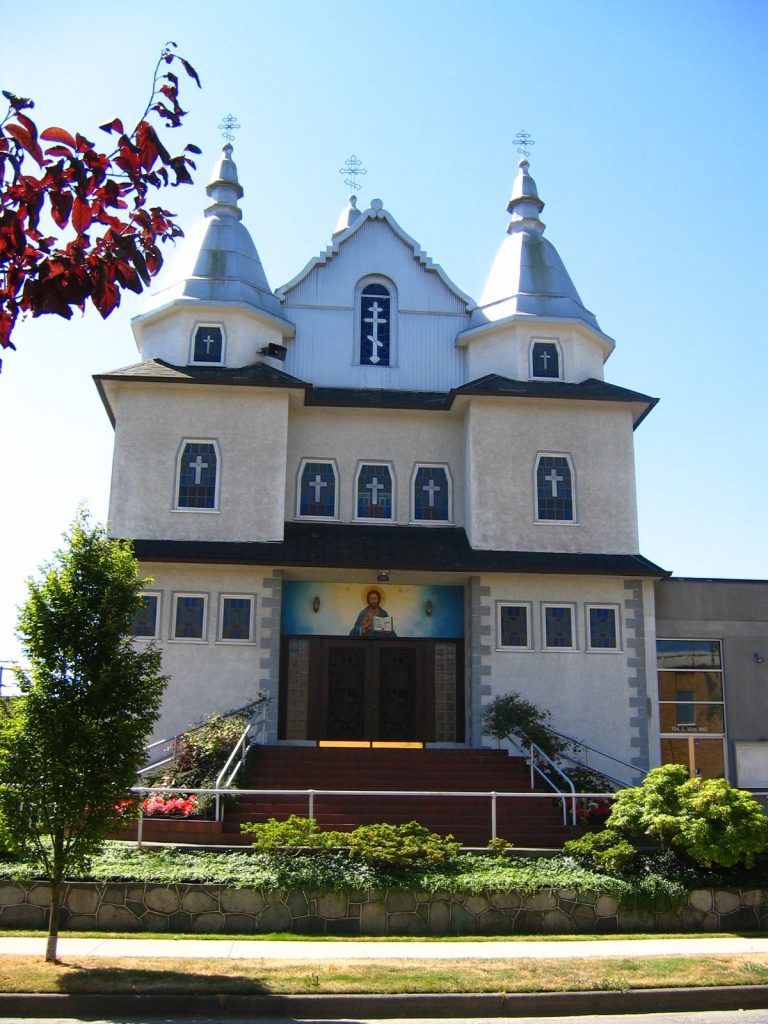
I Believe (Ua/EN/FR)
31-го травня 1998. Сьома Неділя по Пасці, Святих Отців Першого
1. Слово Боже: Апостол: Діянь 20,16-18,28-36.
Євангелія: Івана 17,1-13.
2. Роздумування про Слово Боже: ВІРУЮ!
У цю Сьому неділю після Пасхи Свята Церква пригадує Святих Отців Першого Вселенського Собору, що сходилися в м. Нікеї (сьогодні це місто – в Туреччині) в 325-му році. Собор скликав римський імператор Святий Константин Великий, якого Свято ми відзначили Літургією тому 5 днів.
Нам надто легко переставити сьогоднішній світогляд, який цінить відлучення Церкви від держави й опрокидувати те, що політична особа так устрявала в справи релігії. І дійсно, вертатися до тих днів, коли держава наказувала те, в що мають вірити її піддані – зовсім не слід. А все одно ми можемо бачити, що таки була Божа воля в тому, що зарядив Святий Константин, скликавши цей Собор.
Цей Собор зробив дуже важливе рішення, яке формує наше поняття про відношення між Богом та людством. Він же проголосив на підставі Святого Писання, що Ісус з Назарету – не тільки найкраща людина, яка будьколи жила на цьому світі, але що Він у той же час – Бог! Бог так полюбив людський рід, що Він став одним із нас!
Тепер наше поняття про Бога, Який понад усе, що б ми тільки могли собі уявити, сполучене з поняттям, яке Його ставить поміж нами – як Людина, що говорить людським словами і діє не тільки чуда, але й звичайні людські речі. Святі Отці дали вказівку тим, що хотять пізнати Бога в цьому світі. Вони заявили могутні слова: “Вірую!” Ми віримо в Бога, що любить нас і що пов’язав Своє життя з нами на всі віки, як Правдива Людина й Правдивий Бог.
Священик Ігор Юрій Куташ
May 31, 1998. Seventh Sunday after Pascha, Fathers of the First Ecumenical Council
1. God’s Word: The Epistle: Acts 20:16-18,28-36.
The Gospel: John 17:1-13.
2. Meditation on God’s Word: I BELIEVE
On this Seventh Sunday after Pascha, the Church remembers the holy fathers of the First Ecumenical Council which met in Nicea (today this is a town in Turkey) in 325. It was called by the Roman Emperor St. Constantine whose feast day we celebrated with a Liturgy 5 days ago.
It is easy to transpose today’s point of view which values the separation of Church and state and denounce the fact that a political figure would be so involved in a matter of religion. We certainly would not want to return to a time when the state dictated what the populace should believe. But this conviction should not keep us from seeing that God’s will was expressed in St. Constantine’s action.
This council made a most important decision which affects our view of the relationship between God and humanity. It declared on the basis of the Holy Scriptures that Jesus of Nazareth was not only the best human being who ever lived, but that He was at the very same time also God. God loved humanity so much that He became one of us!
Now our conception of God Who is beyond anything that we could imagine is complemented by a conception which places Him in our midst: a Man whom we can hear speaking human words and see in action – doing ordinary everyday things as well as amazing miracles. The holy fathers gave an answer to those who would wish to come to know God in this world. They declared: “I believe!” We believe in a God who loves us and Who has linked His life with us for all eternity as True Man and True God.
Rev’d Ihor George Kutash, Dean of the Cathedral
le 31 mai 1998. Septième dimanche après Pâques. Les saints pères du premier concile oecuménique
1. La Parole de Dieu: L’Épître: Actes 20,16-18,28-36
L’Évangile: Jean 17,1-13.
2. Méditation sur la Parole de Dieu: JE CROIS!
En ce septième dimanche après Pâques, l’Église commémore les saints pères du premier concile oecuménique qui eut lieu en Nicée en 325, convoqué par l’impérateur Saint Constantin le grand dont nous allons célébré la fête dans 3 jours.
Il y a des gens qui transposent la perspective d’aujourd’hui de la séparation de l’état de l’Église, qui critiquent le fait qu’une figure politique soit impliquée dans une affaire de religion. Certainement, nous ne voulons pas retourner au temps où l’état dictait la manière de croire, à sa population. Mais cette conviction ne nous empêche point de voir la volonté de Dieu exprimée dans cette action de Saint Constantin.
Ce concile a pris une décision extrêmement importante pour notre vision de la relation entre Dieu et l’humanité. Il a constaté, conformément avec la révélation des Saintes Écritures, que Jésus de Nazareth n’est pas tout simplement un homme le meilleur qui n’ait jamais vécu, mais qu’Il est en même temps Dieu. Dieu a tant aimé l’humanité qu’Il est devenu Homme!
Maintenant notre perception de Dieu Qui est plus haut qu’on ne puisse imaginer est complementée par une conception qui Le place parmi nous: un Homme qu’on peut entendre prononcer des paroles humaines et voir Ses actions – aussi bien ordinaires que miraculeuses. En effet, les saints pères ont donné une réponse à ceux qui voulaient connaître Dieu dans ce monde. Ils ont déclaré: Je crois! Nous croyons au Dieu Qui nous aime et Qui a lié Sa vie avec nous pour toute l’éternité comme Homme véritable et Dieu véritable.
Ihor Georges Kutash, Curé
